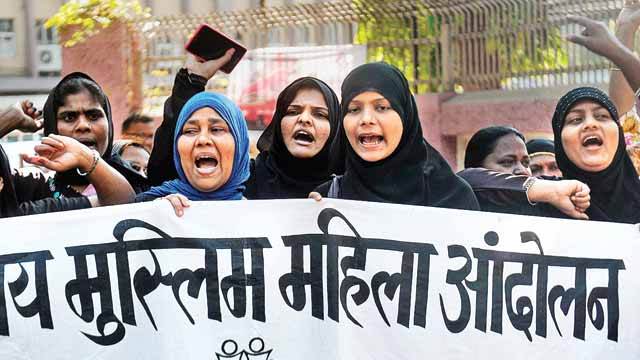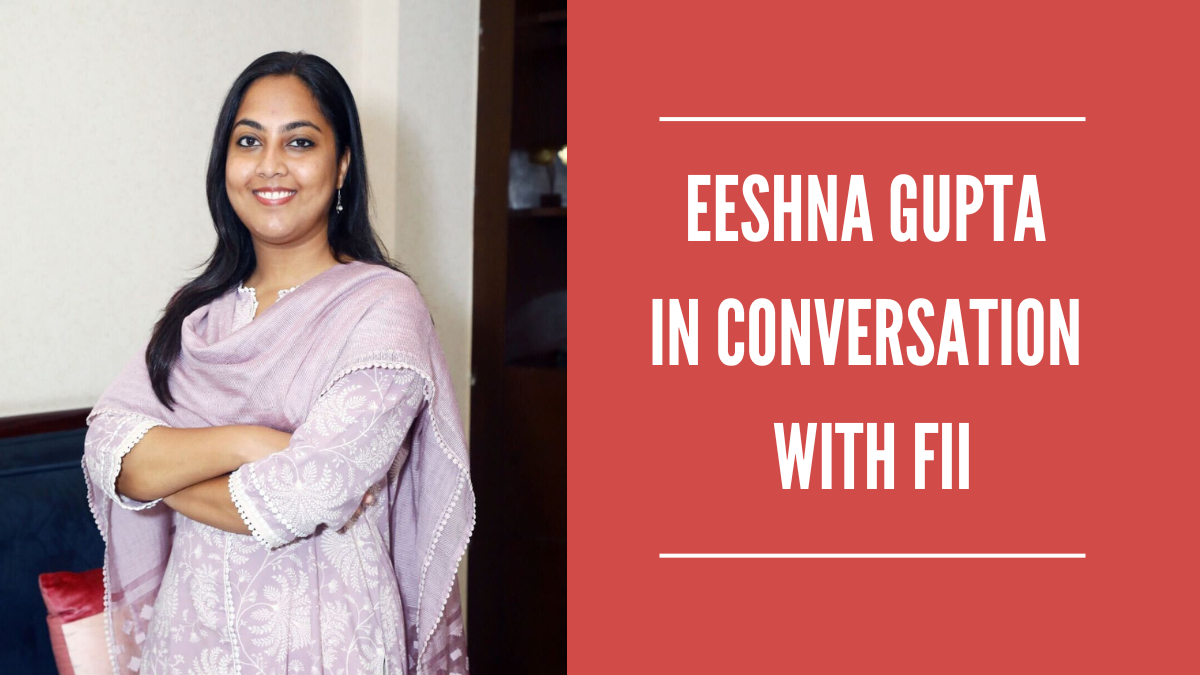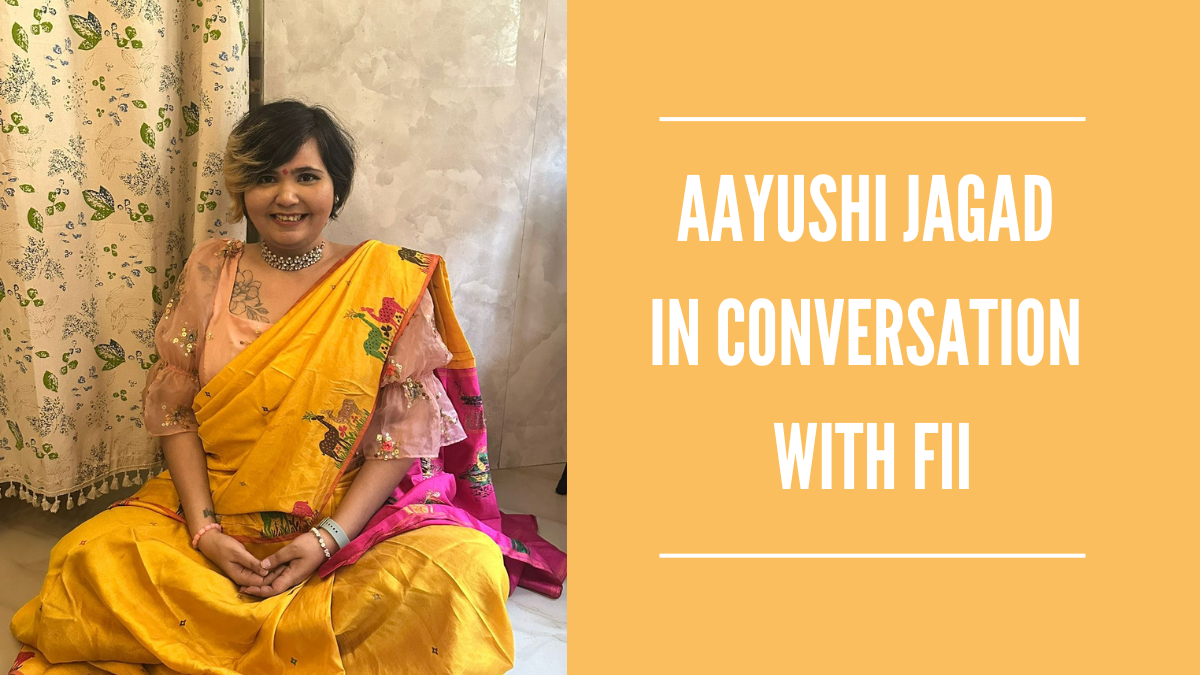Bharatiya Muslim Mahila Andolan or BMMA is an autonomous, rights-based organisation fighting for rights and justice for Muslim women in India. It was set up in the year 2007, and now has spread over to 15 states, and has more than 1,25,000 members. It aims to bring about societal changes in the country that will give equal opportunities to Muslims, particularly Muslim women to eradicate their own poverty and marginalisation, to live a life of equality and dignity. BMMA has been working extensively for the eradication of Triple Talaq, reforms in the Muslim Personal Law, and citizenship rights, along with others.
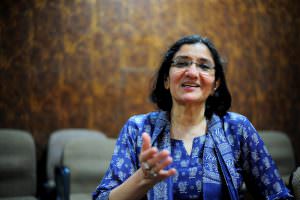
BMMA Co-Founder Zakia Soman [Image Courtesy: womensweb.in]
We had the wonderful opportunity of interviewing her about the works of BMMA, and the position of Muslim women in India.
AK: The Bhartiya Muslim Mahila Andolan was founded in the year 2007. What changes have been there in the way the position of Muslim women is viewed, both by the members of the organisation and outside?
ZS: First and foremost, the biggest change that we have been able to bring about is that we have highlighted to the Indian public that gender justice is a fundamental principle of Islam. The perception has been that if she is a Muslim woman then she will be a voiceless creature, confined to the four walls of the home, and behind a veil. We have been able to tell people that if a Muslim woman is not getting justice, it is not because of religion, but because of the prevalence of patriarchy. Gender justice is a fundamental principle of Islam.
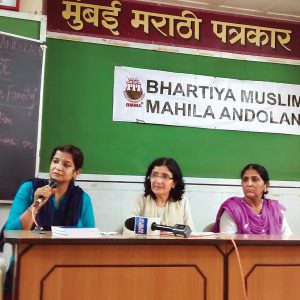
[Image Courtesy: DNA India]
Women started telling us about the kind of experiences that they undergo, when they are thrown out of their homes overnight, in the name of triple talaq. So then our focus became law reforms, and situating gender justice in Islam. The shift came but not so consciously, we were basically responding to the circumstances.
Also read: BMMA Co-Founder Zakia Soman On The Need To Reform Muslim Personal Law
AK: A lot of the BMMA initiatives like putting a stop to triple-talaq, polygamy etc are based on the arguments that the practices are non-Quranic and have been prevalent because the religion as a whole has existed in a patriarchal society. To what extent would you say that changing the way in which Muslims understand their religion and the rights given to them by virtue of it, will transform the gender equation while the other institutions around them continue to be sexist?
ZS: It is important for us to always keep in mind that Indian Muslims are also citizens in a secular democracy, and the constitution entitles us to equal citizenship and equal participation in all spheres of life. The lack of understanding of Islam, and the dominance of religious clerics who have a male-dominated worldview, has led to the situation where a man has become superior to a woman. For women to become equal we have to draw strength from the Quran, from the constitution, from the democratic principles and from all the institutions around us.
In fact, we need to draw strength from the movements of other communities, whether the Dalit community or the other marginalised communities, and see how they have been able to find legal justice avenues. So we need to work in different areas, in different spheres. We need to work with the women, with the government, with the community leaders, with the media. No reform can happen in seclusion, it has to go hand in hand with all spheres of life. Legal reform is very important, but equally important is social reform. The best of laws will become meaningless if there is no education, empowerment and social awareness.
AK: Where would you place the movement for Muslim Women’s liberation, in relation to the larger struggle of Women’s liberation? Also, in relation to other people’s movements like the movement for Dalit or Adivasi liberation?
ZS: The movement of Dalit liberation has a history of around a couple of 100 years in our history, and there have been many reformers like Phule and Ambedkar. So there has been a huge process of democratisation and political consciousness in the Dalit community, due to which they have been able to make their voices heard. They have fought against untouchability and injustice, and hence there is some kind of an affirmative action in the laws.
But for us, our movement is still in infancy. If we look at the history of independent India, then there have only been individuals like Shah Bano who went to the court. But it was easily possible to crush her because she was just an individual. The collective effort of women who are coming out and speaking in large numbers has only started happening now, in the last 5-6 years. So we need to learn a lot from the other democratic movements in our country, and in fact from other countries as well.
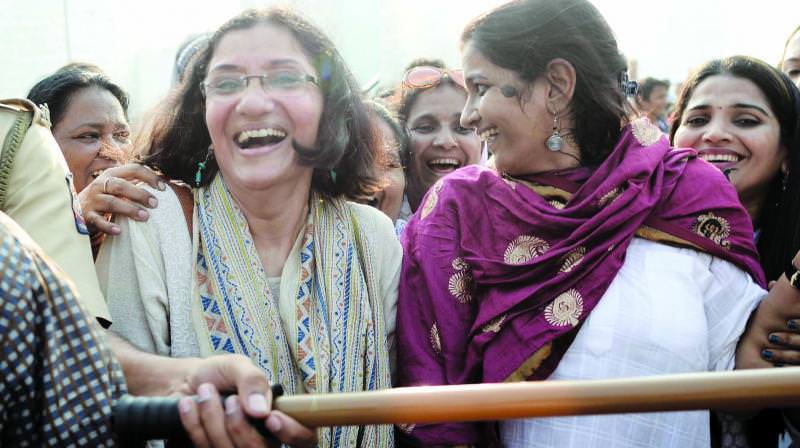
BMMA Co-founders Zakia Soman and Noorjehan Safia Naz [Image Courtesy: The Asian Age]
In India too, the feminist movement had been dominated by the upper class and upper caste. So it has happened gradually that women from other communities, like Dalit women, women from the North-Eastern states, tribal women, fisher community women, and similarly Muslim women are speaking up. So there’s a huge wave of women from the subaltern community speaking up. This is a very positive and historic development for us but we have a lot to learn.
AK: An initiative of BMMA titled Udaan, aims to engage with Muslim boys not just for providing them with better educational opportunities, but also to sensitise them to the rights of women. When it comes to the latter, what are the reactions that you get from young boys, especially those who are growing up in families where women’s rights are not usually talked about?
ZS: We basically felt that if we want to work for gender justice in the long run, then we have to bring in the males somewhere. And it’s not at all easy to have men to come to your meetings. So we planned to start when they were still very young, and hence started the Udaan group of boys and Sehr group of girls. We don’t straightaway embark on educating them, but try to build a consciousness around gender very slowly. We do so by bringing together the girls and boys for the simplest of things, like vocational guidance, discussing current happenings, sports events, picnics etc.
I remember in Hospet, Karnataka, when we organised some sports competitions, the boys said that they only play with boys, and not with girls. When we explained to them that girls are also a part of our group and we cannot just leave them, so they agreed. Some girls even won the competitions. Now they have no problem in doing everything together. It’s about breaking stereotypes and making boys realise that girls around them can be in any role, sister, friend etc but they are equal human beings. I’m saying it simply, but it’s not that easy. We have to continuously sensitise and tweak our program in such a way that they understand.
AK: BMMA alleges that triple talaq is un-Islamic whereas the All India Muslim Personal Law Board (AIMPLB) calls it morally wrong but religiously and lawfully valid. What is your take on this controversy?
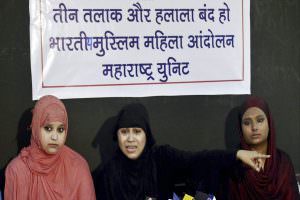
[Image Courtesy: dailyworld.in]
Secondly, Quran has elaborately spoken about divorce being a very bad thing. And if divorce has to happen, then there are verses in the Quran involving dialogue between both parties and mediation by family members lasting over a period of minimum of 90 days. The Quran presses for divorce to be just and fair. So the view of the Personal Law board is its own view based on their own patriarchal mindset. And we totally, totally reject their view.
When law was brought against Sati, there were many organisations who were opposing it in the name of religion. But the government went ahead and brought the law, didn’t it? No religion can violate women’s equality and women’s justice. It’s not really about religion, but about the patriarchal worldview which is passed off in the name of religion.
Also read: Why Is All India Muslim Personal Law Board’s Defense Of Triple Talaq Very Problematic?
AK: There were various opportunities available for women’s education around the 12th century, during what is known as the Golden Age of Islam (a claim by the 12th-century Sunni scholar Ibn ‘Asakir, mentioned in Daily Life in the Medieval Islamic World, by James E. Lindsay (2005) ) However, there has been a wide gap between the education of Muslim men and women. In India, the 2011 Census revealed that around 50% Muslim women are illiterate. What factors would you attribute to the decrease of a pro-education culture, if at all it has happened?
ZS: Barring that very brief period of the Golden Age, there have been very few individual women in the Islamic world excelling in education. The society has been dominated by the considerations of the rulers who have been patriarchal, power conscious, and they have build up their own male-dominant religious institutions. So there has really been no place for the women. However, if you look at the life of the Prophet then there have been some very, very courageous and outstanding women characters. They have had a part in governance, society, and even in battles. But that again, was for a very brief period. After the Prophet, it has again been a very male dominant paradigm.
Coming to the present day, the Indian Muslims are a very poor community with lots of educational and economic deprivation. In fact, the Sachar Committee figures say that out of a 100 Muslims, only 4 are graduate. We don’t know if the 4 include a single woman or not. But the silver lining that we have found through our work is that the Muslim girls are eager to acquire education. They want to go to colleges and universities. This is where the role of the government and educational institutes come in. The girls are hungry for education, can we provide them with the right opportunities is the question.
AK: In some meetings and consultations of BMMA (e.g. a one-day consultation on codification of Muslim family law, organised on 7th April 2012), the attending members comprise of both men and women. This type of inclusion of men while talking about issues for women, on one hand, can help create an equal discourse, but on the other hand it can also lead to unhealthy appropriation and belittling of some significant inequality issues. Do you agree with this? If yes, do you think BMMA has managed to create a balance between the two possibilities?
ZS: In the last around 11 years, we have consistently had this experience that I’d like to share. Suppose we are having a public meeting in which there will be some men too. Sometimes, they would be sitting right in the front row. As soon as the meeting is over, they will get up and start preaching to all of us. They will preach to us about the glories of our religion as signified in obedience of women, and the virtues that women must have, about how we should consult this Maulana or that religious figure for an ideal woman character. So basically at the end of a very meaningful and enriching meeting the men find it necessary to preach to us because in their eyes we are merely women, and the process is incomplete without their preaching.
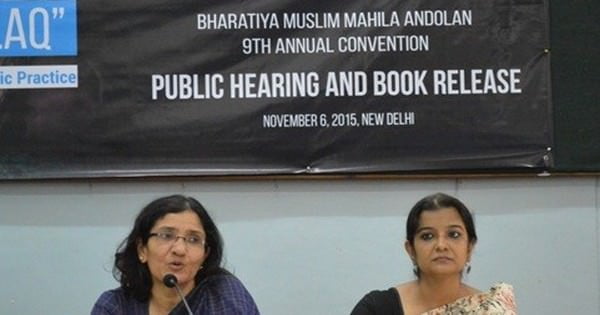
Image Courtesy: Scroll.in
Earlier we used to moderate and regulate the proceedings from the dais. But in the last few years we have seen that there is no need to moderate them from the dais because the women in the audience give it back to them! They tell them that we don’t need to learn worldly wisdom and virtues from you, in fact, for a change you learn from us! This happens in several of our meetings.
But let me also say that there are some men who support us and speak in solidarity. They are not in a very large number, so we still have a long way to go.
AK: Have their been any instances in the past when, while seeking reformation, the Quranic principles and the Constitutional principles have clashed? If so, how are these clashes perceived, and resolved?
ZS: There is no clash as such. The values of the Quran and the values of the Constitution are really converging. The core values of the Quran are justice, kindness, compassion and wisdom, and aren’t these the same values which are enshrined in the Constitution! So there is actually a lot of consonance between the Quran and the Constitution.
Lately, there has been a manipulative attempt to make it seem like the Quran vs the Constitution. But it isn’t a case of either-or. What we are pursuing are goals by both, and it is only natural since the values converge and also because the concept of ‘Ijtihad‘ (independent reasoning) in Islam allows a lot of scope for evolution and improvisation. So there is no clash really.
FII appreciates the empowering work that Zakia as well as the BMMA have been doing and wishes them all the very best for their future endeavours.
Featured Image Credit: Andhra & Telengana Wishesh
About the author(s)
Aqsa writes on the intersections of identity and society, exploring how these layers shape people’s lives and perspectives. With a background in literature and cultural studies, her work reflects a belief that stories can create space for empathy and new ways of seeing. Outside of writing, she enjoys reading and gaming, always chasing stories in one form or another.
